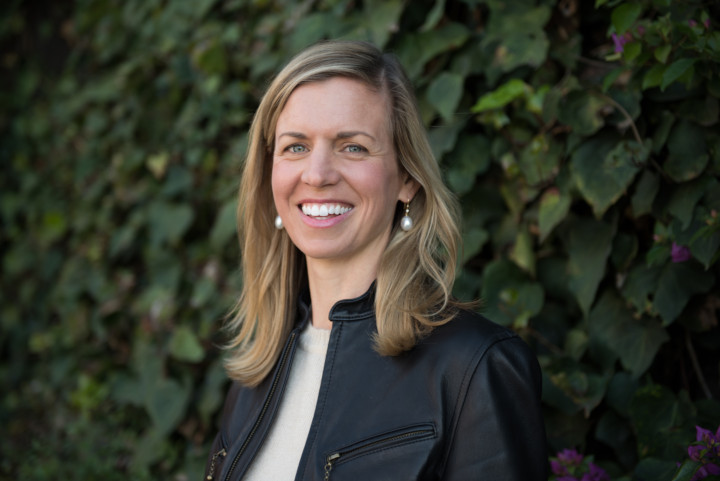RamaOnHealthcare September 2, 2022
Today, RamaOnHealthcare talks with Kelsey Mellard, Founder, and CEO of Sitka, a telehealth platform that allows primary care providers (PCPs) to request near-immediate asynchronous video consultations, or vConsults, from a network of specialists to inform patient diagnosis and care.
RamaOnHealthcare (ROH): Tell us about your background; what led you to start Sitka?
Kelsey Mellard (KM): As a child growing up on a farm in rural Kansas, my mother, a pediatric OT, brought me on house calls to help keep her younger patients engaged. I learned these patients were largely Medicaid recipients and saw first-hand the impact my mother could have on them. It instilled a deep-seated desire in me to want to impact the lives of others.
After starting my career with the Kaiser Foundation, I’ve been fortunate to build upon positions in both government and technology, including Honor, naviHealth, UnitedHealth Group, and the Center for Medicare and Medicaid Innovation.
As the founder and CEO of Sitka, I am now working to open the telehealth/vConsult arena to specialists, specifically giving patients, and their primary care providers, significantly more convenient, expedited, and efficient access to specialist care across twenty different specialties, including mental health.
ROH: What problem does Sitka solve? How is it different from other vConsult offerings?
KM: Sitka gives patients, and their primary care providers, more convenient and efficient access to specialists. With Sitka, patients can essentially “jump the line,” so to speak, instead of waiting the typical eight-week waiting period it can take to be connected to a specialist. Our platform enables specialists to inform patient diagnosis and care from wherever they are located. So instead of being referred out and waiting for weeks, these issues can be solved ~85% of the time with their primary care provider within hours.
With Sitka, patients can essentially ‘jump the line,’ so to speak, instead of waiting the typical eight-week waiting period it can take to be connected to a specialist.
The platform is also asynchronous – avoiding one of the largest bottlenecks in all of healthcare – scheduling. Video and text consults take place asynchronously between the primary care physicians and the specialists, meaning there is no need to schedule in advance. These consults take place on the fly…unheard of in our current healthcare system. On the backend, this requires policy expertise, interstate cooperation, adherence to regulation, and overall innovation. Sitka allows hundreds to do the work of thousands by connecting patients to specialist clinicians in an expedient, agile, HIPAA-compliant environment. Primary Care Medical groups using Sitka’s vConsults have access to doctors across twenty individual specialties, including behavioral health.
ROH: Healthcare models have historically been focused on quantity over quality of care – you’ve mentioned that Sitka’s mission is to provide value-based care. Can you describe more about how you make that possible through Sitka and what you think needs to change in the industry overall?
KM: Yes, Sitka is solely focused on partnering with value-based care providers. These providers have opted to manage the quality of the care they provide for their members, not just the quantity. The Center for Medicare and Medicaid Innovation, where I used to work, has been a significant catalyst for these value-based arrangements. The industry needs to continue adopting value-based models, but at a significantly faster rate if we want to create sustainability for the Medicare Trust Fund.
The industry needs to continue adopting value-based models, but at a significantly faster rate if we want to create sustainability for the Medicare Trust Fund.
ROH: How does increased primary care provider access to specialists lead to cost savings? Who stands to benefit?
KM: In some cases, specialty care accounts for over 50% of the total cost of care for a population. If primary care providers had better tools that could help inform them of the “right care at the right time,” it would help obviate the need for a large percentage of the referrals to specialists. However, most specialists are not in value-based contracts, so the current system is misaligned. Specialists continue to be incentivized by the quantity of patients.
When PCPs are enabled to practice to the top of their license, everyone wins. First off, the system isn’t spending as much on specialist care. The patient does not need to continue to pay for additional co-pays, and there is no delay in care.
When PCPs are enabled to practice to the top of their license, everyone wins.
ROH: Have you created any partnerships that show traction in the industry?
KM: This past year alone, Sitka inked its premier partner and signed significant customer deals with Optum, Aetna, Aledade, and Babylon, while expanding its relationship with ChenMed. The platform itself has touched more Medicare beneficiaries’ lives than ever before.
ROH: How do you measure success?
KM: There are so many markers of success, and we are very excited they affect a wide cross-section of the healthcare system – including ACOs, individual doctors, patients, and the hospital staff. There are decreased costs associated with rehospitalization avoidance and a decreased amount of specialist visits. Patients will experience significantly reduced wait times to access specialists with less out-of-pocket costs. Overall, our complicated healthcare system will benefit from decreased logistics and coordination demands.
Overall, our complicated healthcare system will benefit from decreased logistics and coordination demands.
About Kelsey P. Mellard
Kelsey P. Mellard is the Founder, and CEO of Sitka, a virtual, value-based multi-specialty network expanding the scope of primary care. Kelsey has been a leader in healthcare innovation across companies within the healthcare, government, and technology industries, including Honor, naviHealth, UnitedHealth Group, and the Center for Medicare and Medicaid Innovation. She enjoys the great outdoors with her partner George, son Dalman, and pup Arlo.






